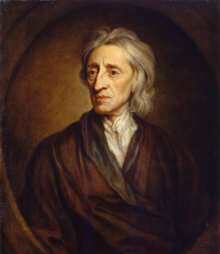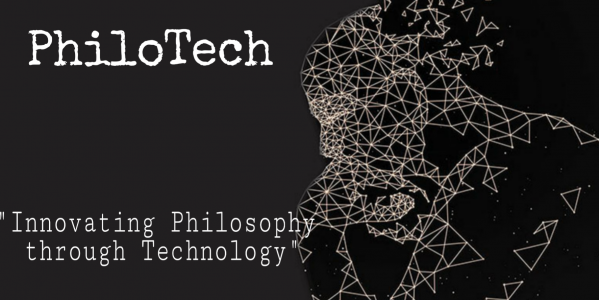
Social Contract Theory

Social contract theory is a political philosophy that questions the origins of society, and the legitimacy of governmental control over individual people. It is an argument that all men have an obligation to “do unto others as you would have them do unto you.”
1.Rousseau Social Contract Theory

Rousseau begins The Social Contract with the most famous words he ever wrote: “Men are born free, yet everywhere are in chains.” From this provocative opening, Rousseau goes on to describe the myriad ways in which the “chains” of civil society suppress the natural birthright of man to physical freedom. To Rousseau, the collective grouping of all people who by their consent enter into a civil society is called the sovereign, and this sovereign may be thought of, metaphorically at least, as an individual person with a unified will. This principle is important, for while actual individuals may naturally hold different opinions and wants according to their individual circumstances, the sovereign as a whole expresses the general will of all the people. Rousseau defines this general will as the collective need of all to provide for the common good of all.
Rousseau describes the ideal form of this social contract and also explains its philosophical underpinnings. To Rousseau, the collective grouping of all people who by their consent enter into a civil society is called the sovereign, and this sovereign may be thought of, metaphorically at least, as an individual person with a unified will. This principle is important, for while actual individuals may naturally hold different opinions and wants according to their individual circumstances, the sovereign as a whole expresses the general will of all the people. Rousseau defines this general will as the collective need of all to provide for the common good of all.
For Rousseau, the most important function of the general will is to inform the creation of the laws of the state. These laws, though codified by an impartial, noncitizen “lawgiver,” must in their essence express the general will. Accordingly, though all laws must uphold the rights of equality among citizens and individual freedom, Rousseau states that their particulars can be made according to local circumstances. Although laws owe their existence to the general will of the sovereign, or the collective of all people, some form of government is necessary to carry out the executive function of enforcing laws and overseeing the day-to-day functioning of the state.
Rousseau writes that this government may take different forms, including monarchy, aristocracy, and democracy, according to the size and characteristics of the state, and that all these forms carry different virtues and drawbacks. He claims that monarchy is always the strongest, is particularly suitable to hot climates, and may be necessary in all states in times of crisis. He claims that aristocracy, or rule by the few, is most stable, however, and in most states is the preferable form.
Rousseau acknowledges that the sovereign and the government will often have a frictional relationship, as the government is sometimes liable to go against the general will of the people. Rousseau states that to maintain awareness of the general will, the sovereign must convene in regular, periodic assemblies to determine the general will, at which point it is imperative that individual citizens vote not according to their own personal interests but according to their conception of the general will of all the people at that moment. As such, in a healthy state, virtually all assembly votes should approach unanimity, as the people will all recognize their common interests. Furthermore, Rousseau explains, it is crucial that all the people exercise their sovereignty by attending such assemblies, for whenever people stop doing so, or elect representatives to do so in their place, their sovereignty is lost. Foreseeing that the conflict between the sovereign and the government may at times be contentious, Rousseau also advocates for the existence of a tribunate, or court, to mediate in all conflicts between the sovereign and the government or in conflicts between individual people.
Analysis

Rousseau’s central argument in The Social Contract is that government attains its right to exist and to govern by “the consent of the governed.” Today this may not seem too extreme an idea, but it was a radical position when The Social Contract was published. Rousseau discusses numerous forms of government that may not look very democratic to modern eyes, but his focus was always on figuring out how to ensure that the general will of all the people could be expressed as truly as possible in their government. He always aimed to figure out how to make society as democratic as possible. At one point in The Social Contract, Rousseau admiringly cites the example of the Roman republic’s comitia to prove that even large states composed of many people can hold assemblies of all their citizens.
2. Locke

He did agree with Hobbes that humans chose to create a social contract, but didn’t agree with the details of how or why. According to Locke’s hypothesis, life without government in the state of nature probably wasn’t quite so bad. In some ways, it was an ideal state of personal freedom where one could choose to do what they want to do. The state of nature was not so brutal in his view and instead was relatively peaceful.
3. Hobbes

Human beings are rational, according to Hobbes, so it only makes sense that they would want to escape this nightmare. Since human beings are primarily self-interested as well, Hobbes believed only a strong ruler, like a king, was a good solution to moving beyond the state of nature. Due to how horrible this life was for human beings, even a brutal dictator would be better than life where you fear death around every corner.
What Makes a Government Legitimate?

Would you rather live with the threat of death around every corner or live under the rule of a terrible tyrant?
Early social contract theorists debated these and other topics related to politics. They concerned themselves with why human beings have chosen to live in governmental systems and what makes a government legitimate. They also imagined what life would be like without government.
In this lesson, we’ll look at two major thinkers in social contract theory: Thomas Hobbes and John Locke. We’ll also look at a key critic of their ideas: David Hume.
Hobbes’ State of Nature
A social contract is the agreement among people to live under a system of government, and social contract theory involves how and why this agreement emerged. Social contract theorists also discussed which forms of government are legitimate.
Let’s start with the perspective of Thomas Hobbes and what he believed the world was like before a social contract existed. Warning: It’s not pretty. Hobbes described a hypothetical world before recorded human history that was an ‘every man for himself’ type of environment. In his own words, life was ‘solitary, poor, nasty, brutish, and short’.
If you’re familiar with the comic strip, Calvin and Hobbes, think of how the character of Hobbes was a tiger. This can help you remember that the state of nature for Hobbes was brutal, with individuals struggling to survive alone against fears like tigers and other people coming to attack them. This society without civil government is described as a state of nature.
Human beings are rational, according to Hobbes, so it only makes sense that they would want to escape this nightmare. Since human beings are primarily self-interested as well, Hobbes believed only a strong ruler, like a king, was a good solution to moving beyond the state of nature. Due to how horrible this life was for human beings, even a brutal dictator would be better than life where you fear death around every corner.
4. Divine Right Theory

Divine Right Theory is the idea that you have your privileges, your rights, by act of God, or the divine. They said that it was God who gave them the right to rule over men, but only God has that right, or one whom He appoints. So, the divine right of kings is the usurping of God’s right to rule over men.
5.Natural Theory

Natural law theory is a legal theory that recognizes law and morality as deeply connected, if not one and the same. Morality relates to what is right and wrong and what is good and bad. Natural law theorists believe that human laws are defined by morality, and not by an authority figure, like a king or a government. Therefore, we humans are guided by our human nature to figure out what the laws are, and to act in conformity with those laws. The term ‘natural law’ is derived from the belief that human morality comes from nature.
6.Instinctive Theory

That states stem from man’s natural desire to live and stay together under a system of government and organization.
7.Economic Theory

The theory that an increasing consumption of goods is economically beneficial. the economic theories of John Maynard Keynes who advocated government monetary and fiscal programs intended to stimulate business activity and increase employment.
8.Paternalistic Theory

It attributes the origin of states to the enlargement of the family which remained under the authority of the father or mother. By natural stages,
the 1987 Constitution of the Philippines 15 family grew into a clan, then developed into a tribe which broadened into a nation, and the nation became a state.
9. NECESSITY OR FORCE THEORY
According to this theory, the state originated due to force exerted by the strong over the weak and the powerful conquered the weak state is the outcome of the process of aggressive exploitation of the weaker by the stronger.
Consent of the Governed
The most fundamental concept of a democratic government is that the government exists only to secure the rights of the people. Men join a society, submitting to its government, by explicit consent in order to gain three things not given them by natural law:
- Laws
- Executive power to enforce the laws
- Judges to arbitrate and settle conflicts in law
While under the laws of nature, it is theorized that man had an absolute right to protect himself, and to punish those who disobeyed those laws. Once a social contract has been entered into, by organizing under a government body, each person largely transfers his power to protect himself, and to personally punish those who do wrong, to that government.
Consent of the Governed in America
As Thomas Jefferson penned the Declaration of Independence, he attempted to express the Founding Fathers’ desires and intents in forming the new government. In this example of social contract theory, Jefferson expressed their belief that government is created to serve man, and serves at men’s behest:
“We hold these truths to be self-evident, that all men are created equal, that they are endowed by their Creator with certain unalienable Rights, that among these are Life, Liberty and the pursuit of Happiness. That to secure these rights, Governments are instituted among Men, deriving their just Powers from the Consent of the Governed…”
Social Contract Theory Example
As an example of social contract theory in practice, consider if William accuses Adam of stealing $1,000 from him. Adam denies having done it. In a natural law state, the men might settle the matter by fighting – or perhaps William would break into Adam’s home and attempt to take the money back. Once a social contract has been entered into by forming a cohesive society, governed by law, the men must put their faith in the legal system.
In the United States, the people have elected representatives to run the government, which consists of three separate branches, each keeping the others in check. Each member of society has given up his right to take matters into his own hands, expecting that everyone else will do the same. One of the benefits, in this example of the social contract theory, is that no one is free to get revenge on people they think have wronged them.
Another example of social contract theory might occur if two men wake up in the woods. Nether knows where he is, or how he got there. While they have no supplies, both men have guns, and a healthy distrust of the other. As the men walk around looking for edible plants and berries, each keeps looking behind himself, fearing the other might steal what he’s found, or hurt him. Not only are the men distracted, it is difficult to gather food carrying a gun around. However, if both men agree to lay down their guns at the same time, they can go about their tasks without fear. To add another dimension to the contract the men have just entered into, they might agree to search for what they need together, sharing equally.
Ethics
The concept of morality under the natural law theory is not subjective. This means that the definition of what is ‘right’ and what is ‘wrong’ is the same for everyone, everywhere.
The natural law approach to solving ethical dilemmas begins with the basic belief that everyone has the right to live their life. From there, natural law theorists draw a line between an innocent life and the life of an ‘unjust aggressor.’ The natural law theory recognizes the legal and moral concept of self-defense, which is often used to justify acts of war.
Natural law theory is not always a simple school of thought. It should come as no surprise that the ethics associated with natural law are equally complicated. The idea that the definition of what is ‘right’ and what is ‘wrong’ is the same for ‘every person’ is sometimes difficult to apply to complex ethical dilemmas.
Examples
Consider the following examples…
Example 1:
You are a passenger on a ship sailing across the ocean. Suddenly, your ship is overtaken in a powerful storm. You escape to a lifeboat with 25 other passengers. You notice that four of the passengers are badly injured, and unlikely to survive for more than a week. You also know that the lifeboat only has enough food and water to sustain 22 passengers. Some of the other passengers are considering throwing the four injured passengers overboard in order to save the other survivors. If you were a natural law theorist, how would you solve this ethical dilemma?

Your Blogger,
Gian Patrice Montero
